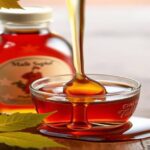Hala fruit is a tropical fruit that grows on the pandanus tree. It is also known as pandanus fruit or screw pine fruit. The tree’s fruit is frequently used in traditional Southeast Asia and Pacific cuisines. The fruit is usually eaten fresh or dried but may also use to produce jams, jellies, and other preserves. It is also used in traditional medicine to treat many diseases. The fruit’s flavor is sweet and aromatic, with a distinct, somewhat flowery flavor. So, let’s explore the Benefits of Hala Fruit.
What is Hala Fruit?
Hala fruit, also known as flaxseed fruit or “vegetable fruit,” is a spherical fruit with a rough, fibrous shell approximately the size of a baseball. Within the shell comes a delectable, velvety pulp with a distinct sweet-tangy taste. Hala fruit is native to India and Southeast Asia, but it is now being grown all over the globe, notably in Peru and Hawaii.
The History of Hala Fruit

For thousands of years, hala fruit has been used in traditional medicine. The fruit’s health benefits have long been mentioned in traditional Indian writings and even gave it to ancient warriors to improve their stamina and strength. Hala fruit is now acknowledged as a superfood and is becoming more popular as a health supplement.
Overview of Hala Fruit Nutritional Benefits
Hala fruit is a nutrient-dense food abundant in critical vitamins and minerals. The significant benefit of hala fruit eating is its high antioxidant content. It includes catechins, flavonoids, and other substances that protect the body from free radical damage and lower the chance of chronic disease development. Furthermore, hala fruit is high in dietary fiber, protein, and Omega-3 fatty acids.
Minerals and vitamins
The hala fruit is high in vitamins and minerals needed for the body’s proper functioning. It contains vitamins A and C, calcium, iron, magnesium, phosphorus, and potassium. Vitamins A and C are required for healthy skin and eyes, while minerals in hala fruit are required for organ function, enzyme activity, and muscle development.
Antioxidant Content
Polyphenols and other substances in hala fruit are potent antioxidants that help protect the body from free radical damage. These antioxidants also assist in lowering inflammation throughout the body, which may help to protect against diseases like arthritis, heart disease, and cancer.
Fiber Content
Hala fruit is high in dietary fiber, which is necessary for a healthy digestive tract. It makes you feel fuller for longer, which aids with weight control. Furthermore, fiber promotes the development of beneficial bacteria in the stomach, facilitating digestion and lowering the risk of chronic illnesses.
Protein Composition
Hala fruit is a good source of plant-based protein. Therefore it’s a good option for vegetarians and vegans. The protein present in Hala fruit aids in the development and repair of muscular tissue and organs, making it very advantageous to athletes and bodybuilders.
So let’s dive into the 18 benefits of hala fruit-eating for our healthier bodies.
Benefits of Hala Fruit
Hala fruit, also called pandanus or screw pine fruit, provides several health advantages. Here are some of the advantages that have been associated with it:
1. Antioxidant-rich
Hala fruit is high in antioxidants, which are chemicals that help protect the body from free radical damage. Free radicals are unstable chemicals that may cause cell damage and contribute to developing chronic illnesses like cancer and heart disease. Free radicals can damage the body if antioxidants do not neutralize them.
Flavonoids, tannins, and phenolic substances are the antioxidants in Hala fruit. Anti-inflammatory, anti-cancer, and heart-protective activities have been shown for these antioxidants. They can also protect the skin from damage, lower the risk of cognitive decline, and improve general health and well-being.
2. It is anti-inflammatory

The anti-inflammatory chemicals of hala fruit may help decrease inflammation throughout the body. Inflammation is a normal reaction to an injury or illness, but persistent inflammation may lead to various disorders. According to research, flavonoids and phenolic acids present in Hala fruit have anti-inflammatory effects that may help improve symptoms of ailments like arthritis, asthma, and other inflammatory disorders.
The anti-inflammatory properties of Hala fruit may also aid in the prevention of some forms of cancer. According to research, the chemicals in hala fruit may prevent cancer cell development and promote apoptosis (cell death) in cancer cells.
3. Reduce blood sugar levels
Some data shows that hala fruit may help lower blood sugar levels. According to research, chemicals in hala fruit, such as flavonoids and phenolic acids, may limit carbohydrate absorption and decrease sugar digestion. It may assist in maintaining stable blood sugar levels and lower the risk of hyperglycemia (high blood sugar) and diabetes.
Furthermore, hala fruit is low in calories and fiber, which might help to maintain balanced blood sugar levels. High-quality meals delay sugar absorption and keep you feeling fuller for longer, preventing overeating and weight gain.
4. It may benefit heart health

There is evidence that eating hala fruit may suit one’s heart health. The high quantities of antioxidants and anti-inflammatory substances present in hala fruit may help lessen the risk of heart disease by decreasing cholesterol, avoiding blood clot formation, and reducing inflammation in the artery walls.
According to one research, consuming hala fruit extract lowered total cholesterol and “bad” LDL cholesterol in rats, which may help lessen the risk of heart disease. Another research discovered that flavonoids and phenolic acids in hala fruit contain anti-inflammatory qualities that may help lower the risk of heart disease by decreasing inflammation in the artery walls.
5. Help in weight loss
Because of its high fiber content, hala fruit may assist in weight reduction by keeping you feeling fuller for longer and preventing overeating. Hala fruit’s dietary fiber may also aid in regulating bowel motions and support the development of healthy gut flora, which may enhance overall digestion and metabolism. Furthermore, hala fruit is low in calories and may be suitable for individuals attempting to reduce weight.
6. Enhance digestion
Hala fruit is abundant in dietary fiber, which aids in the health of the digestive tract. The dietary fiber of Hala fruit aids digestion and minimizes the risk of constipation and other digestive disorders. Furthermore, hala fruit is abundant in antioxidants, which may help protect the digestive system from free radical damage.
Furthermore, the antioxidants and anti-inflammatory substances present in hala fruit may aid in reducing inflammation in the stomach, therefore improving gut health and digestion.
7. Immune system booster
Hala fruit is high in vitamin C, which is necessary for immune system health. Vitamin C is a potent antioxidant that, through boosting the immune system, may help protect the body from infection and illness.
Vitamin C aids in various immune system processes, including producing white blood cells necessary for combating infections. It also aids in the development of antibodies and interferon, a protein that aids in the protection of cells against viral infections.
8. Improve your skin health

Hala fruit is abundant in antioxidants and nutrients that nourish the skin and prevent it from free radical damage. Furthermore, hala fruit includes vitamin E, which aids in skin suppleness and developing wrinkles and age spots. You may help maintain your skin looking healthy and young by eating hala fruit.
The anti-inflammatory components in hala fruit may also aid in decreasing inflammation and redness in the skin, which may be suitable for persons suffering from eczema and psoriasis.
9. Lower your chances of cancer
Hala fruit is high in antioxidants, which help protect the body from free radical damage, which may contribute to cancer. Furthermore, hala fruit includes a high level of dietary fiber, which aids in the prevention of colon cancer, and a moderate amount of protein, which may aid in the prevention of prostate cancer. You may lower your chance of contracting cancer by eating hala fruit.
In laboratory and animal research, hala fruit extract has been demonstrated to suppress the development of cancer cells. However, additional study is required in human trials to prove the anti-cancer benefits of hala fruit.
10. Lower your chance of osteoporosis

Hala fruit is high in calcium, which is necessary for healthy bones, and for lowering osteoporosis incidence. Furthermore, hala fruit is abundant in vitamin C, which aids the body’s absorption of calcium. You can keep your bones healthy and lower your risk of osteoporosis by eating hala fruit.
11. Assistance with Kidney Issues
Hala fruit contains potassium, which is necessary for maintaining healthy kidney function. Furthermore, hala fruit is rich in dietary fiber, which helps maintain the kidney’s healthy by lowering the danger of kidney stones. The antioxidants in hala fruit may also help protect the kidneys from free radical damage.
12. Relieve stress and anxiety
There has been little study on the impact of hala fruit on anxiety and stress. However, some research suggests that the antioxidants and anti-inflammatory chemicals present in hala fruit may aid in the reduction of inflammation and oxidative stress in the body. It may assist in boosting general health and well-being while possibly alleviating anxiety and stress symptoms.
13. Enhance brain function
Hala fruit is high in B vitamins necessary for optimum brain development. B vitamins aid in improving memory and cognitive function and reducing stress and anxiety. Furthermore, hala fruit is high in antioxidants, which may help protect the brain from free radical damage.
14. Help in eyesight improvement

The hala fruit is high in vitamin A, which is needed for excellent eyesight. Vitamin A promotes eye health and may reduce age-related macular degeneration risk. Furthermore, hala fruit includes antioxidants, which might help protect the eyes from free radical damage.
15. Help in lowering blood pressure
Hala fruit is abundant in potassium, which aids in blood pressure reduction. Furthermore, hala fruit includes a high quantity of dietary fiber, which aids in the reduction of dangerous cholesterol levels, as well as a moderate amount of protein, which aids in the reduction of the risk of heart disease and stroke. You may help keep your blood pressure in control by eating hala fruit.
16. Aid in the prevention of hair loss
The hala fruit is rich in vitamins, minerals, and antioxidants, which assist in maintaining the scalp healthy. The vitamins and minerals in hala fruit may help encourage hair development, while the antioxidants can protect the scalp from free radical damage. Hala fruit is high in protein, which is necessary for developing and maintaining strong, healthy hair.
17. Help with wrinkle prevention
Hala fruit is potent in antioxidants, which help protect the skin from free radical damage. The antioxidants in hala fruit may aid in the reduction of wrinkles, age spots, and other indications of aging. Furthermore, hala fruit includes vitamin E, enhancing skin suppleness and reducing wrinkle appearance.
18. It may aid in the treatment of anemia
Iron, which is required to produce red blood cells, is abundant in hala fruit. Because an iron deficiency may result in anemia, eating Hala fruit can help avoid iron deficiency and anemia. Furthermore, hala fruit is abundant in vitamin C, which aids iron absorption in the body.
How to Eat Hala

Fruit Hala fruit may be raw, fresh, or dried, mixed into smoothies, or baked into meals. It may also be cooked, which softens the rough skin and lets you savor the flavor of the pulp more readily.
Conclusion
Hala fruit is an excellent superfood with several health advantages. It is high in essential vitamins and minerals, as well as potent antioxidants, which aid in reducing inflammation and preventing chronic illnesses. Furthermore, hala fruit is high in dietary fiber and plant-based protein, making it an ideal option for vegetarians and vegans. Try eating it fresh or dry, mixing it in smoothies, baking it in dishes, or boiling it to add hala fruit to your diet.









